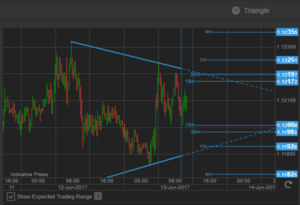How do interest rates affect stock prices?
The central bank will raise rates for various reasons, but by making the value of borrowing money more expensive, money itself becomes more expensive. A small upward change in the rate can make a formerly profitable loan unprofitable, which can have significant impacts on the economic activity, says Leverte’s Adinah Brown

If this is the kind of question that confuses you, you are not alone.
When the central bank changes the interest rate, it sparks an impact in various different ways, including the stock market.
First, let’s have a quick refresher on interest rates.
Interest rates are the amount you pay to borrow money. When a country’s central bank sets the rate, this is the rate that banks receive when they borrow money, which becomes the minimum rate at which they can lend money.
The central bank will raise rates for various reasons, but by making the value of borrowing money more expensive, money itself becomes more expensive. A small upward change in the rate can make a formerly profitable loan unprofitable, which can have significant impacts on the economic activity.
But the other side of the coin, interest rates on bank deposits are also impacted. A rate rise will make depositing into a bank more attractive. A rate rise also means that Federal Bond rates increase, which makes bonds more attractive.
So, to review, a rate rise makes money more expensive, decreases borrowing and the borrowed cash. People now invest more in bonds and deposit more. The sum total of this is that there is now less discretionary money available for consumption of products. This is generally not good for shares, which often receive its profits from the consumers willing to spend on their product/service.
Also, in the zero sum game of investing, if bonds and savings are increased, it is at the expense of other investment options, including shares.
Shares represent parts of a business and businesses are funded by loans. As a result, a rate rise will itself decrease profitability by making their debt more expensive, cutting into their profits. They will spend more to service their debt, which means that the capital available for investment decreases.
So in total, a rate rise will generally mean that businesses are less profitable due to increased borrowing rates.
They are also likely to be less profitable due to a decrease in discretionary spending by consumers. Investors will have other options that are more attractive than before the rate rise, which might make them rethink their share exposure. This all adds up to a decrease in the value of shares and the share market.
But there are exceptions to this. Cash rich companies, for example, will often have greater value if interest rates rise, because of the relative value of the cash holdings. In the absence of a clear growth plan, shareholders will pressure for higher dividends, which usually creates an increase in share prices also.
In addition, companies that receive their income or loans from overseas sources are relatively unimpacted by a rate rise, since their consumers and loan costs will be unaffected.
Then there are businesses which actually profit from rate rises. Importation costs are usually less expensive on the back of a stronger local currency from a rate rise. Banking stocks also rise on rate increases, since more depositing and higher returns on existing loans tend to improve their profitability. Companies that deal with rainy day situations will likely see more business during a downturn.
And sometimes the rate rise can be a good thing, for a very strange reason. During the GFC, one chocolate company’s sales improved substantially. Why? People were looking for treats but didn’t have the money for a big treat like a holiday or a big screen tv. So they turned to inexpensive luxuries, like chocolate.
Whilst there is likely to be a general decrease in the value of stocks due to a rate rise, often this simply provides you with an opportunity to find a real bargain. Knowing your shares, their leverage, their cash holdings and downturn risk, will provide you with good defensive positions or opportunities in the market when all others fail.









